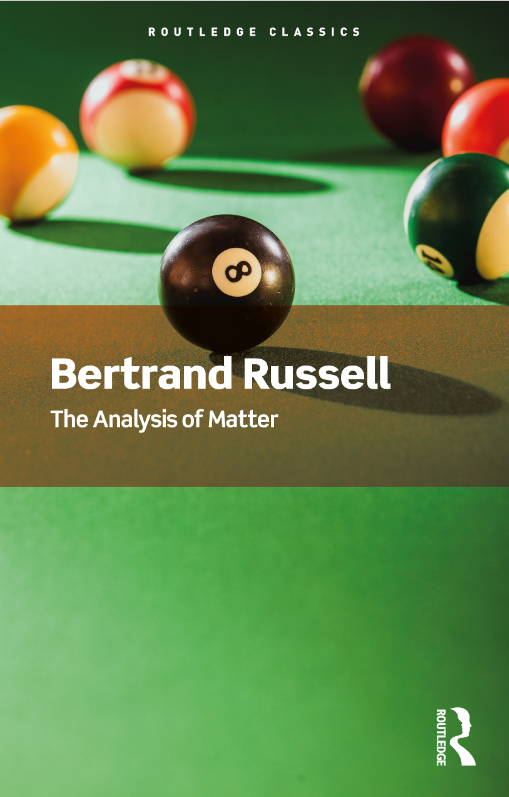Newly released
This book is new and will be uploaded as soon as it becomes available to us and if we secure the necessary publishing rights.

The Analysis of Matter Book PDF
(0)
Author:
Bertrand RussellNumber Of Reads:
65
Language:
English
Category:
Natural ScienceSection:
Pages:
401
Quality:
excellent
Views:
927
Quate
Review
Save
Share
Book Description
The Analysis of Matter is the product of thirty years of thinking by one of the twentieth century's best-known philosophers. An inquiry into the philosophical foundations of physics, it was written against the background of stunning new developments in physics earlier in the century, above all relativity, as well as the excitement around quantum theory, which was just being developed.
Concerned to place physics on a stable footing at a time of great theoretical change, Russell argues that the concept of matter itself can be replaced by a logical construction whose basic foundations are events. He is careful to point out that this does not prove that matter does not exist, but it does show that physicists can get on with their work without assuming that matter does exist. Russell argues that fundamental bits of ''matter'', such as electrons and protons, are simply groups of events connected in a certain way and their properties are all that are required for physics.
Bertrand Russell
Bertrand Arthur William Russell, (18 May 1872 – 2 February 1970) was a British mathematician, philosopher, logician, and public intellectual. He had a considerable influence on mathematics, logic, set theory, linguistics, artificial intelligence, cognitive science, computer science and various areas of analytic philosophy, especially philosophy of mathematics, philosophy of language, epistemology, and metaphysics.
He was one of the early 20th century's most prominent logicians, and a founder of analytic philosophy, along with his predecessor Gottlob Frege, his friend and colleague G. E. Moore and his student and protégé Ludwig Wittgenstein. Russell with Moore led the British "revolt against idealism". Together with his former teacher A. N. Whitehead, Russell wrote Principia Mathematica, a milestone in the development of classical logic, and a major attempt to reduce the whole of mathematics to logic (see Logicism). Russell's article "On Denoting" has been considered a "paradigm of philosophy".
Russell was a pacifist who championed anti-imperialism and chaired the India League.He occasionally advocated preventive nuclear war, before the opportunity provided by the atomic monopoly had passed and he decided he would "welcome with enthusiasm" world government. He went to prison for his pacifism during World War I. Later, Russell concluded that the war against Adolf Hitler's Nazi Germany was a necessary "lesser of two evils" and also criticized Stalinist totalitarianism, condemned the United States' war on Vietnam and was an outspoken proponent of nuclear disarmament. In 1950, Russell was awarded the Nobel Prize in Literature "in recognition of his varied and significant writings in which he champions humanitarian ideals and freedom of thought". He was also the recipient of the De Morgan Medal (1932), Sylvester Medal (1934), Kalinga Prize (1957), and Jerusalem Prize (1963).
Book Currently Unavailable
This book is currently unavailable for publication. We obtained it under a Creative Commons license, but the author or publisher has not granted permission to publish it.
Rate Now
5 Stars
4 Stars
3 Stars
2 Stars
1 Stars
The Analysis of Matter Quotes
Top Rated
Latest
Quate
Be the first to leave a quote and earn 10 points
instead of 3
Comments
Be the first to leave a comment and earn 5 points
instead of 3